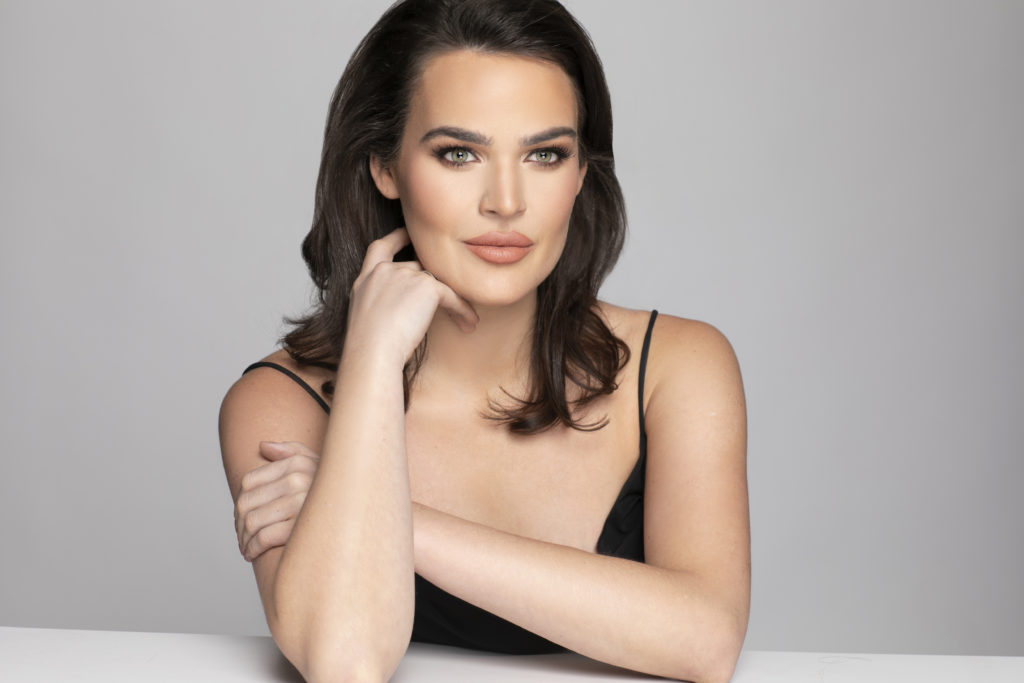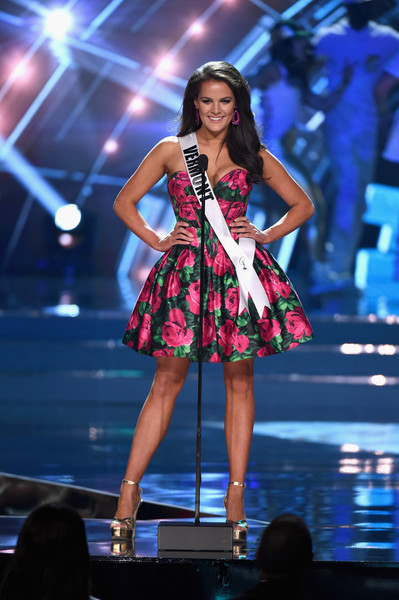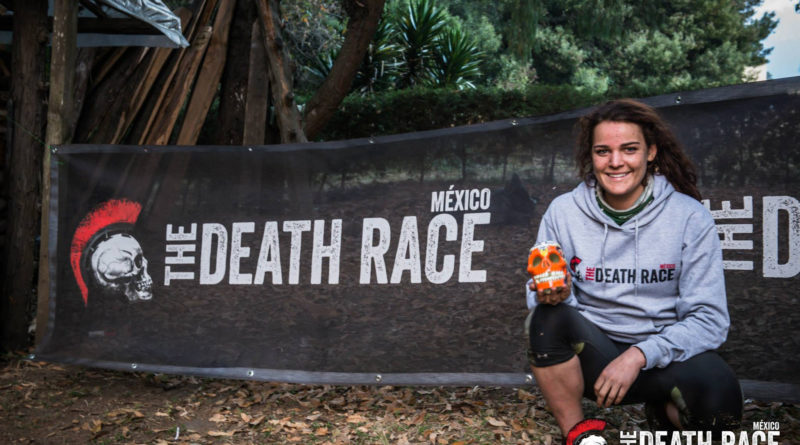The Spartan Miss Vermont

Name: Neely Fortune Age: 28
Lives in: Burlington and Essex, New York
Profession: Outdoor educator and small business owner
Family: Brother, Brooks; two wonderful parents, John and Jan
Primary sport: Endurance running
In 2010, Neely Fortune was assaulted by a close friend, who soon after committed suicide, and Fortune discovered the body. Instead of succumbing to post-traumatic stress syndrome that struck her after these incidents, she decided to fight it.
Fortune, who grew up in Syracuse before moving to Vermont her senior year in high school, not only turned her life around, she did it in a big way.Lacking confidence in herself and believing she had little athletic ability, she took two big leaps in 2014 by entering a beauty pageant and running an ultramarathon. Now, the 2016 Miss Vermont works for Spartan Extreme, setting up challenging courses so others can test their limits.
Which came first, beauty pageants or ultra running?
I tried both for the first time in the fall of 2014 but it all started four years earlier in college. I had developed PTSD and I was trying to wade through my anxiety and depression.
I really wanted to be proactive and get back to who I was, so I sought out the craziest things I could find. The pageantry piece just fell into my lap. I saw an advertisement and I decided to try it. I wanted to gain some self-confidence. In those days, I wasn’t leaving my room, so I decided to put myself out in public.
As for the running, I never thought I’d ever do a marathon, but a friend invited me to do an ultrarace that January. I figured the worst that could happen is I wouldn’t finish.
That was actually my shortest ultra race. It was 60K and I loved it so much that I went on to do distances of 50 miles, 100K and 100 miles.
You must have done some sports before that, right?
I tried a lot, but I had it in my mind that I wasn’t athletic. I tried to run track in high school but I was quite overweight and a bit uncoordinated and the coach said I didn’t have the body to be a runner. I didn’t really know what I was capable of.
What is the joy of pushing your limits in races?
I’m really not a good runner; I tend to be slow, but I crave the confirmation that I’m capable of something much more than I give myself credit for. I like to seek out that moment when I’m too tired and feel like I can’t go on and then find a way to get past it. That way, when I get a moment like that in life, I can go past that, as well. In addition to the endorphin rush, running is really a transcendental experience.
Can you explain the allure of competing pageants?
It was the same type of challenge that I got from extreme sports only it was more of a mental challenge. I struggled with my self-image growing up and I didn’t have a lot of friends. It took a lot of courage to get dressed up, wear make-up, answer questions, and put myself in the position of being judged.
I never expected to win but I wanted to put myself in a situation where I had never been. I wanted to feel beautiful, conquer my interview skills and develop opinions on social issues. I also liked the idea that if I won, I would have a platform. I competed for three years and I was named Miss Vermont in 2016 which gave me the opportunity to help people with PTSD including veterans, battered women and people dealing with anxiety and depression.

What is your favorite ultra race?
That would have to be the Vermont 100. I’ve run it twice and I enjoy it because it’s in my home state and there are some famous runners who take part. Through the race I’ve learned about Vermont Adaptive Ski and Sports and I think they are an incredible organization, so I’ve been happy to raise money for them.
Is there a really memorable race?
One of my most memorable races was the Death Race in Mexico in 2015 which took place on an active volcano. We had hit a point where it was everyone for themselves and at 2 a.m. I missed a turn and was lost. It took me a mile to realize I was off course and I became totally hysterical, blowing my whistle and screaming but nobody could hear me.
I hadn’t eaten or drank enough and after ten minutes of panic, I thought about the Cheryl Strayed book Wild which I had just read and, just like Strayed, I screamed “I am not afraid” as loud as I could and it re-centered and refocused me. Nobody knew I was gone, and I ended up as one of the 10 out of 50 competitors who finished. I completely lost myself and then I found myself and it was a really powerful moment.
How did you end up working for Spartan Race?
I had done a number of races with them and I loved their obstacle courses and endurance challenges. The endurance world is a very fostering community and I feel that way with Spartan. I work for Spartan Extreme.
I’m one of the staff members who directs the Agoge races which are held twice a year at different locations where they incorporate the local culture. In Greece we built a race that mimicked the trials faced in the Odyssey. We gave each contestant a copy of the book which had hidden clues. We did one in Namibia with a bush culture theme including starting a fire with a bow drill.
These are 60-hour, non-stop, no-sleep races which require leadership skills and teamwork building. Typically, the entire event covers 70 to 100 miles. The idea is to create an experience that is so physically, mentally, and emotionally challenging that it creates an environment of self-discovery. The tasks racers perform require problem solving and survival training. We break people down and build them back up again. We put them through such extreme challenges that they face whatever demons they brought with them.
There really is a bell curve where they hit rock bottom and come back up. These are small races with only 50 to 100 people because you need one staff member for each group of ten people. It’s the most difficult race that Spartan offers. Agoge is like the Death Race but with more structure. The Death Race is every person for him or herself.
Tell us about your business.
In 2008, my father and I started a company called SIM*VIVO. He’s a surgeon and surgery professor at UVM. He was making devices in the basement to use in his classes. I decided we should try to sell them. They are surgical skill simulators that help doctors learn to suture and perform other tasks. I helped him develop the business side and I run the company.
Your UVM degree was in wildlife biology. Do you still use that?
I also minored in forestry and have certification from National Outdoor Leadership School and I use those skills at the Spartan races where I teach survival skills like foraging for wild edibles, building fires and shelters, map reading, water finding, and leadership. I do that for the Death Race and the Agoge races.
What kind of races are you doing these days?
I’ve taken a little break from trail running and I’m doing more road marathons. Last year I ran in New York City and Boston, and next year I’ll run Boston with the Boston Celtics marathon team to raise money for the Boston Celtics Shamrock Foundation which supports programs that benefit children in need. I found the foundation through an Essex, New York mentoring program called Brilliant Pathways. It’s been really great working with them and now I get to raise more money for a good cause.

